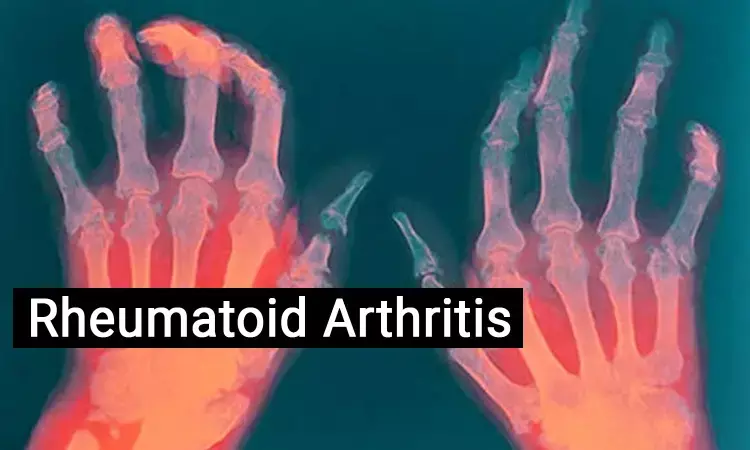- Home
- Medical news & Guidelines
- Anesthesiology
- Cardiology and CTVS
- Critical Care
- Dentistry
- Dermatology
- Diabetes and Endocrinology
- ENT
- Gastroenterology
- Medicine
- Nephrology
- Neurology
- Obstretics-Gynaecology
- Oncology
- Ophthalmology
- Orthopaedics
- Pediatrics-Neonatology
- Psychiatry
- Pulmonology
- Radiology
- Surgery
- Urology
- Laboratory Medicine
- Diet
- Nursing
- Paramedical
- Physiotherapy
- Health news
- Fact Check
- Bone Health Fact Check
- Brain Health Fact Check
- Cancer Related Fact Check
- Child Care Fact Check
- Dental and oral health fact check
- Diabetes and metabolic health fact check
- Diet and Nutrition Fact Check
- Eye and ENT Care Fact Check
- Fitness fact check
- Gut health fact check
- Heart health fact check
- Kidney health fact check
- Medical education fact check
- Men's health fact check
- Respiratory fact check
- Skin and hair care fact check
- Vaccine and Immunization fact check
- Women's health fact check
- AYUSH
- State News
- Andaman and Nicobar Islands
- Andhra Pradesh
- Arunachal Pradesh
- Assam
- Bihar
- Chandigarh
- Chattisgarh
- Dadra and Nagar Haveli
- Daman and Diu
- Delhi
- Goa
- Gujarat
- Haryana
- Himachal Pradesh
- Jammu & Kashmir
- Jharkhand
- Karnataka
- Kerala
- Ladakh
- Lakshadweep
- Madhya Pradesh
- Maharashtra
- Manipur
- Meghalaya
- Mizoram
- Nagaland
- Odisha
- Puducherry
- Punjab
- Rajasthan
- Sikkim
- Tamil Nadu
- Telangana
- Tripura
- Uttar Pradesh
- Uttrakhand
- West Bengal
- Medical Education
- Industry
Early intensive treatment of rheumatoid arthritis reduces fatigue: EULAR

Kilchberg/Switzerland: Disease-related, profound fatigue impairs the quality of life of many people with rheumatic and musculoskeletal diseases. A Belgian study (1) has now concluded that early intensive treatment combining methotrexate with a bridging scheme of prednisone can reduce the onerous fatigue - this also applies to patients at low risk of a severe course. The European League against Rheumatism (EULAR) therefore recommends, that even in so-called low-risk patients, early consideration should be given to whether intensive treatment should be initiated.
Patients with rheumatoid arthritis (RA) suffer from chronically inflamed joints. The inflammatory processes in the body can lead to a feeling of weakness, exhaustion, and lassitude - this abnormal tiredness is called "fatigue". Such fatigue is poorly helped by resting and can accompany patients constantly or at least over long distances.
"In addition to pain, profound fatigue reduces the quality of life for many people, even more than the swelling of the joints", explains EULAR President Professor Dr. Iain B. McInnes from Glasgow, Scotland, UK. However, doctors often do not pay sufficient attention to this fact and do not adjust the therapy accordingly.
A recent Belgian two-year study has now examined the question of whether early intensive treatment of RA directly after diagnosis has a positive influence on the course of the disease and offers an opportunity to manage the fatigue. Using the same approach, it also examined whether these mechanisms also apply to patients who have a lower risk of a severe disease progression.
"Up to 90 percent of patients with rheumatoid arthritis report profound fatigue," says Dr. Diederik De Cock, Katholieke Universiteit Leuven, Belgium, who conducted the study together with his team. Fatigue has a major impact on patients' lives and is perceived by many as difficult to manage. "The early course of the disease could provide an opportunity to manage fatigue."
Eighty patients with a low risk profile were selected for the study - this risk profile is based, among other things, on a low disease activity status. Randomized into two groups of 38 and 42 patients, the subjects received, directly after diagnosis of RA, monotherapy with 15 mg methotrexate weekly or a combination therapy of 15 mg methotrexate weekly plus cortisone (prednisone) starting at 30 mg but tapered weekly to 5mg. Methotrexate suppresses the disease and acute inflammatory reaction, while prednisone has a strong anti-inflammatory effect and is suitable for reducing pain and inflammation of the joints very quickly.
The result: Patients who received intensive treatment with the combination therapy of both drugs for two years were less tired than the patients in the monotherapy control group - even though the disease activity in both groups were comparable over time. The levels of fatigue seemed to differ more and more over time between groups.
"This underlines the importance of initiating optimal, intensive treatment early on, even in so-called low-risk patients," says EULAR Scientific Chair of the Congress, Professor Dr. John Isaacs from Newcastle University, UK. Unfortunately, this is not yet standard practice. The study clearly shows how fatigue levels in early RA can be significantly improved, the congress president concludes. About one percent of all people worldwide suffer from rheumatoid arthritis - according to figures published by EULAR in the run-up to its annual congress.
For more details click on the link: http://dx.doi.org/10.1136/annrheumdis-2020-eular.3160
Hina Zahid Joined Medical Dialogue in 2017 with a passion to work as a Reporter. She coordinates with various national and international journals and association and covers all the stories related to Medical guidelines, Medical Journals, rare medical surgeries as well as all the updates in the medical field. Email: editorial@medicaldialogues.in. Contact no. 011-43720751
Dr Kamal Kant Kohli-MBBS, DTCD- a chest specialist with more than 30 years of practice and a flair for writing clinical articles, Dr Kamal Kant Kohli joined Medical Dialogues as a Chief Editor of Medical News. Besides writing articles, as an editor, he proofreads and verifies all the medical content published on Medical Dialogues including those coming from journals, studies,medical conferences,guidelines etc. Email: drkohli@medicaldialogues.in. Contact no. 011-43720751


